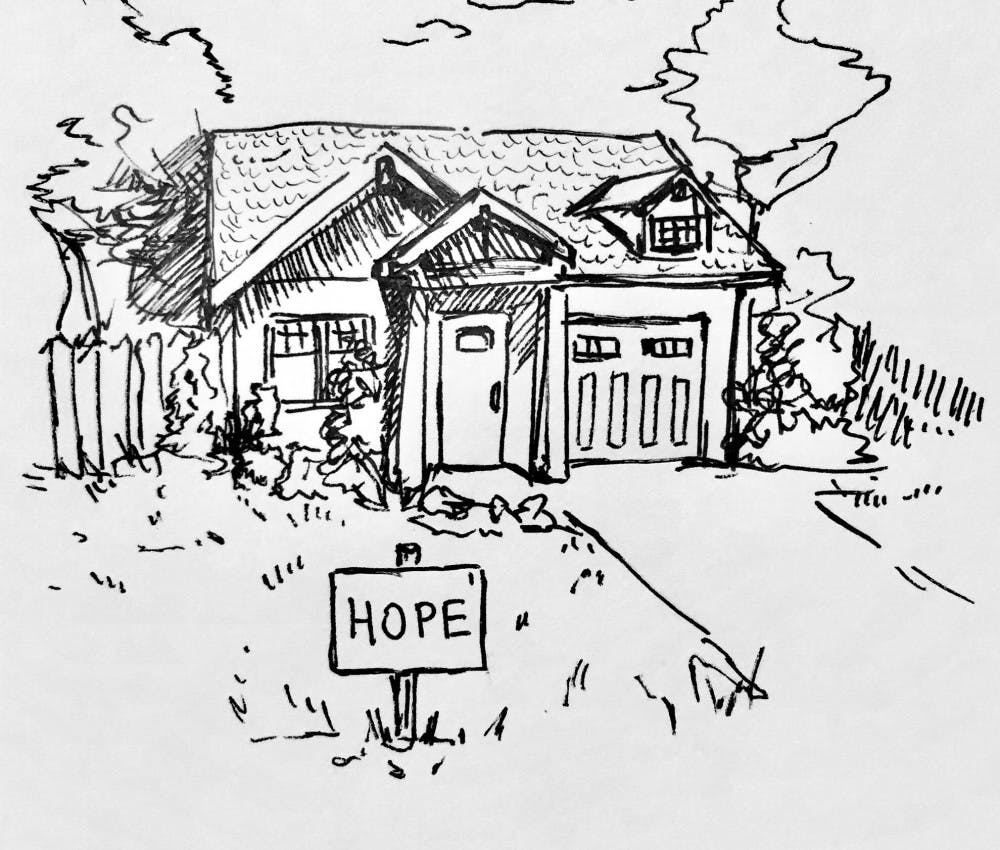As Rhode Island continues rebuilding from the Great Recession of 2008, the key issues of homelessness and housing affordability remain a problem for many in the state, according to a study published by HousingWorks RI in 2017. In order to address and raise awareness around this issue at the legislative level, the University student group Housing Opportunities for People Everywhere created the Model Housing and Homelessness Policy Platform to share with elected officials and community homelessness activists.
According to the HousingWorks RI study, some of the issues driving current housing instability include a lack of diverse, quality housing, an aging housing stock, high housing cost burdens and few affordable quality houses for low-income households. In 2016, “more than 4,200 Rhode Islanders spent at least one night in a shelter bed or transitional program” and 8,500 eviction cases were filed. In 2015, “half of all Rhode Island renter households, more than one in three homeowner households with a mortgage and one in five homeowner households without a mortgage (were) cost burdened,” meaning they spent over 30 percent of their annual income on housing, the study found.
In order to address these issues, HOPE’s policy platform lays out a series of short- and long-term priorities centered on supporting community members facing housing instability. In the short-term, the document recommends passing various pieces of legislation, from prohibiting landlords from discriminating against renters with government rental assistance to waiving fees for obtaining identification and records for those in danger of homelessness. In the long-term, the platform focuses on large-scale reforms to address the affordable housing dilemma. The recommendations, supported by a list of concrete steps to help achieve them, include increasing low-income housing development and creating greater housing stability.
According to Nathaniel Pettit ’20, a co-director of HOPE, the platform not only provides an actionable list for elected officials, but also functions as HOPE’s own set of priorities. “We’d be really happy to see this be used as a starting point for conversation … amongst the bigger housing advocacy community,” he said.
The document, which HOPE started writing in July, went through a series of discussions and revisions with homelessness advocacy groups throughout Rhode Island, Pettit said.
Because students are temporary residents of Rhode Island, it’s important for community advocacy groups to be involved in HOPE’s work, said Dhruv Singh ’20, communications director of HOPE. These groups include Rhode Island Coalition for the Homeless, Direct Action for Rights and Equality, Housing Network of Rhode Island, House of Hope CDC, HousingWorks RI and Signs of Providence.
Throughout the platform’s development, HousingWorks RI collaborated with the students of HOPE to help raise awareness around the policy issues and to shift toward solution-oriented conversations, said Brenda Clement, director of HousingWorks RI.
For Signs of Providence, collaborating with HOPE provided an opportunity to work with the students around policy initiatives to address eviction in the state, said Oscar Dupuy d’Angeac ’17, co-founder of Signs of Providence. “Rhode Island has three times the evictions … of Massachusetts,” he said. Currently, there are few protections for renters regarding sudden rent rises and abrupt housing changes that result in eviction, he added.
After drafting the platform, HOPE presented the final platform to the housing and homelessness policy group at United Way, Pettit said. The next step of the process, sending out the final platform to elected officials, will take place in the next few days, he said.
Ultimately, Pettit hopes that this platform will help create a sustained advocacy effort around housing issues. “Many of us will be here for four years,” Pettit said. “We want to make sure that whoever takes over for us can continue a long-term vision. … That’s why it’s so important for us to embed our efforts amongst our community partners.”





